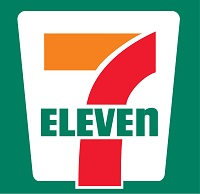Background:
7-Eleven operates in a sector where consumer data is integral to business operations. With the enactment of the California Consumer Privacy Act (CCPA), the company faced significant regulatory requirements related to the handling, storage, and processing of personal data belonging to California residents.
Objective:
The primary objective was to design and implement an IT solution that would ensure full compliance with the CCPA, thus avoiding legal penalties and protecting the company’s reputation while maintaining business efficiency.
Challenges:
Consumer Rights Management:
Ensuring that consumers could easily exercise their rights under the CCPA, such as data access, deletion, and opt-out requests, required a robust and user-friendly solution.Integration with Existing Systems:
Integrating the CCPA compliance solution with existing IT infrastructure without disrupting ongoing operations was critical.Data Security:
The solution needed to ensure that consumer data was protected against unauthorized access and breaches, in line with CCPA security requirements.
Solution:
Consumer Rights Request Portal:
- Developed an online portal where consumers could easily submit requests to access, delete, or opt out of the sale of their personal information.
- The portal was designed to authenticate users securely and manage requests in compliance with the CCPA’s 45-day response window.
- Integrated with backend systems to automate the processing of these requests, reducing the manual workload on IT and legal teams.
Integration with Existing IT Infrastructure:
- Used middleware to facilitate communication between the new compliance solution and the company’s existing CRM, ERP, and data storage systems.
- Conducted a phased rollout to minimize disruptions, starting with non-critical systems before integrating with core business processes.
Enhanced Data Security Measures:
- Upgraded existing security protocols, including encryption of data at rest and in transit, multi-factor authentication (MFA), and regular vulnerability assessments.
- Implemented a data loss prevention (DLP) system to monitor and control the movement of sensitive data within and outside the organization.
Employee Training and Awareness:
- Conducted regular training sessions for employees, focusing on the importance of data privacy and how to handle consumer data in compliance with the CCPA.
- Provided specific training for IT staff on managing and maintaining the new systems.
Results:
Compliance Achieved:
- The company achieved full compliance with the CCPA before the regulatory deadline, avoiding potential fines and penalties.
Improved Data Management:
- The centralized data mapping system provided greater visibility and control over consumer data, improving overall data governance.
Customer Trust:
- The implementation of a transparent and efficient consumer rights management system improved customer trust and satisfaction.
Operational Efficiency:
- Automation of data requests reduced the time and resources required to comply with consumer requests, leading to operational cost savings.
Enhanced Security:
- Strengthened data security measures protected against data breaches, enhancing the company’s overall cybersecurity posture.




